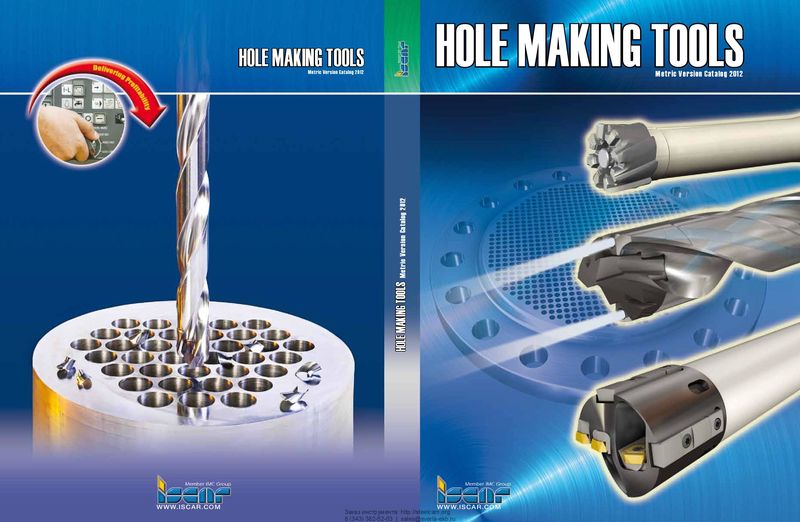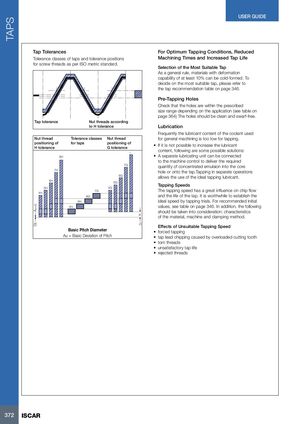Каталог Iscar высокоточные развертки и метчики 2022 - страница 62
Навигация
 Каталог Iscar инструмент для обработки отверстий
Каталог Iscar инструмент для обработки отверстий Каталог Iscar державки и пластины для нарезания резьбы 2022
Каталог Iscar державки и пластины для нарезания резьбы 2022 Каталог Iscar крепление инструмента
Каталог Iscar крепление инструмента Каталог Iscar токарные пластины ISO 2022
Каталог Iscar токарные пластины ISO 2022 Руководство Iscar режущий инструмент в производстве штампов и пресс-форм
Руководство Iscar режущий инструмент в производстве штампов и пресс-форм Каталог Iscar сверла ружейные и для глубокого сверления 2022
Каталог Iscar сверла ружейные и для глубокого сверления 2022 
TAPS Au =0D2 AuD2 USER GUIDE Tap Tolerances For Optimum Tapping Conditions, Reduced Tolerance classes of taps and tolerance positions Machining Times and Increased Tap Life for screw threads as per ISO metric standard. Selection of the Most Suitable Tap As a general rule, materials with deformation capability of at least 10% can be cold-formed. To decide on the most suitable tap, please refer to the tap recommendation table on page 346. Pre-Tapping Holes Check that the holes are within the prescribed size range depending on the application (see table on page 364) The holes should be clean and swarf-free. Tap tolerance Nut threads according to H tolerance Lubrication Frequently the lubricant content of the coolant used Nut thread Tolerance classes Nut thread for general machining is too low for tapping. positioning of for tapsH tolerance positioning ofG tolerance • If it is not possible to increase the lubricant content, following are some possible solutions: 8H • A separate Iubricating unit can be connected to the machine control to deliver the required 7G quantity of concentrated emulsion into the core 7H hole or onto the tap.Tapping in separate operations 6G allows the use of the ideal tapping lubricant. 6H 5G Tapping Speeds 5H 4G 4H 7G The tapping speed has a great influence on chip flow 6G and the life of the tap. It is worthwhile to establish the 6H ideal speed by tapping trials. For recommended initial 4H values, see table on page 346. In addition, the following should be taken into consideration: characteristics of the material, machine and clamping method. Effects of Unsuitable Tapping Speed Basic Pitch Diameter • forced tapping Au = Basic Deviation of Pitch • tap lead chipping caused by overloaded cutting tooth • torn threads • unsatisfactory tap life • rejected threads 372 ISCAR